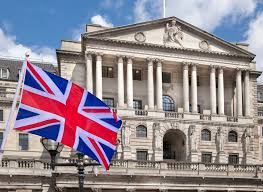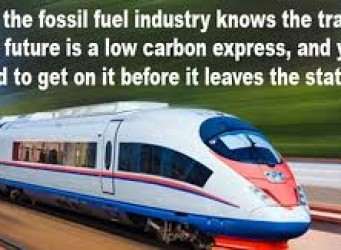If you go to my website, franklytalking.com, and look back over the years of posts, you’ll see quite a few are pointing out the economic and investment risk that climate change threatens. Gradually, over the past years, the alarm has been growing and growing. Undoubtedly, there is going to be disruption to “business as usual.” Enormous shifts of capital are going to occur. Certain industries and sectors of the economy will be enormously impacted. Energy companies that have already capitalized fossil fuel resources that are still in the ground will most likely have to write off literally trillions of dollars of assets (value) if it becomes obvious that they will never be extracted. As sea levels rise, costal property will lose value, maybe all of it. Actually, this is already happening in certain locations.
This alarm and warning is being sounded by higher and higher people of authority and social position. Now it’s Mark Carney, head of the Bank of England.
“While the Harvard University-trained economist from northwest Canada is not the first central banker to warn that climate change represents a dire threat to the global financial system, he is probably the most prominent to do so”
Here’s a sample of what he had to say,
“investors have been slow to appreciate the grave risks of climate change, both environmental and economic.
A sudden course correction could upend financial markets if enormous amounts of money are moved quickly out of areas facing climate risks, like coastal real estate, the oil and gas sector, and companies that might face liability issues by emitting greenhouse gases, Carney said.
“Too rapid a movement toward a low-carbon economy could materially damage financial stability,” he said, adding that the value of high-carbon projects and industries worldwide could drop sharply in value.”
If you’re interested to read his whole speech there is a link in the following article to access it. Like probably most of you, I need to take a very close look at my investments in order to insulate myself from the looming shift. What scares me, though, is that there is no insulating oneself. There will be a trickle down effect or ripple effect that will reverberate through the entire economic system.
Top U.K. Banker Warns of Economic Climate Bubble
Speaking in Amsterdam, Mark Carney, head of the Bank of England, said investors have been slow to appreciate the grave risks of climate change, both environmental and economic.
A sudden course correction could upend financial markets if enormous amounts of money are moved quickly out of areas facing climate risks, like coastal real estate, the oil and gas sector, and companies that might face liability issues by emitting greenhouse gases, Carney said.
“Too rapid a movement toward a low-carbon economy could materially damage financial stability,” he said, adding that the value of high-carbon projects and industries worldwide could drop sharply in value.
While the Harvard University-trained economist from northwest Canada is not the first central banker to warn that climate change represents a dire threat to the global financial system, he is probably the most prominent to do so.
During his term as governor of the Bank of England, Carney has worked closely with Group of 20 officials to study the effects of climate change on financial markets, and he has shepherded into creation, with former New York City Mayor Michael Bloomberg, an international project that presses companies to talk openly about the risks they face from climate.
In his speech, Carney invoked the name and work of Hyman Minsky, a St. Louis economist and mathematician who remained an obscure figure while alive, but whose work took on an air of celebrity in economic circles after the financial crash of 2008.
Today, Minsky is known for crafting the “financial-instability hypothesis” — the idea that long periods of economic prosperity, when people accumulate both wealth and debt, lay the groundwork for the next financial calamity. Wall Street traders and brokers watch for the “Minsky moment.”
Or, in other words, bubbles.
In a not-so-subtle reference to the deceased scholar, Carney issued a warning to his audience, regulators at the Dutch central bank.



